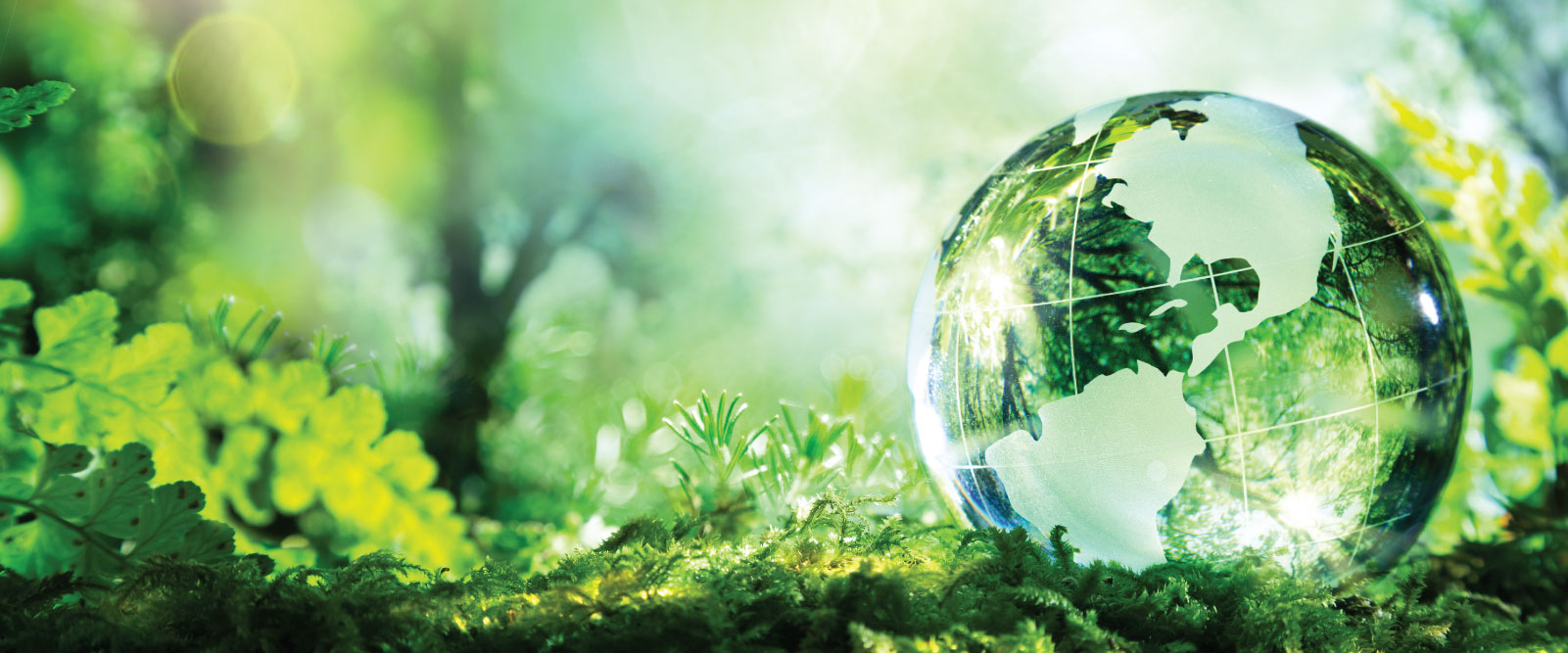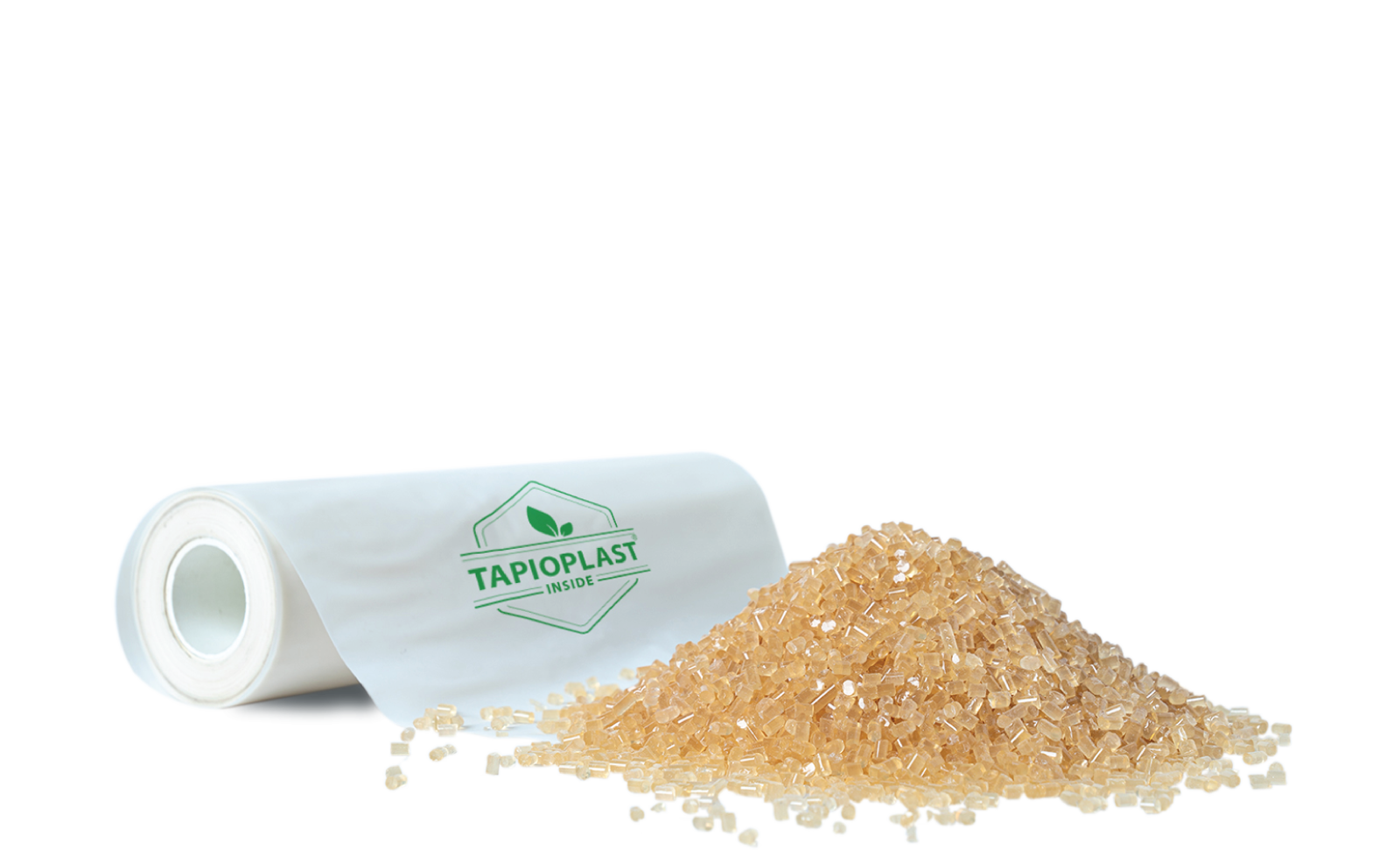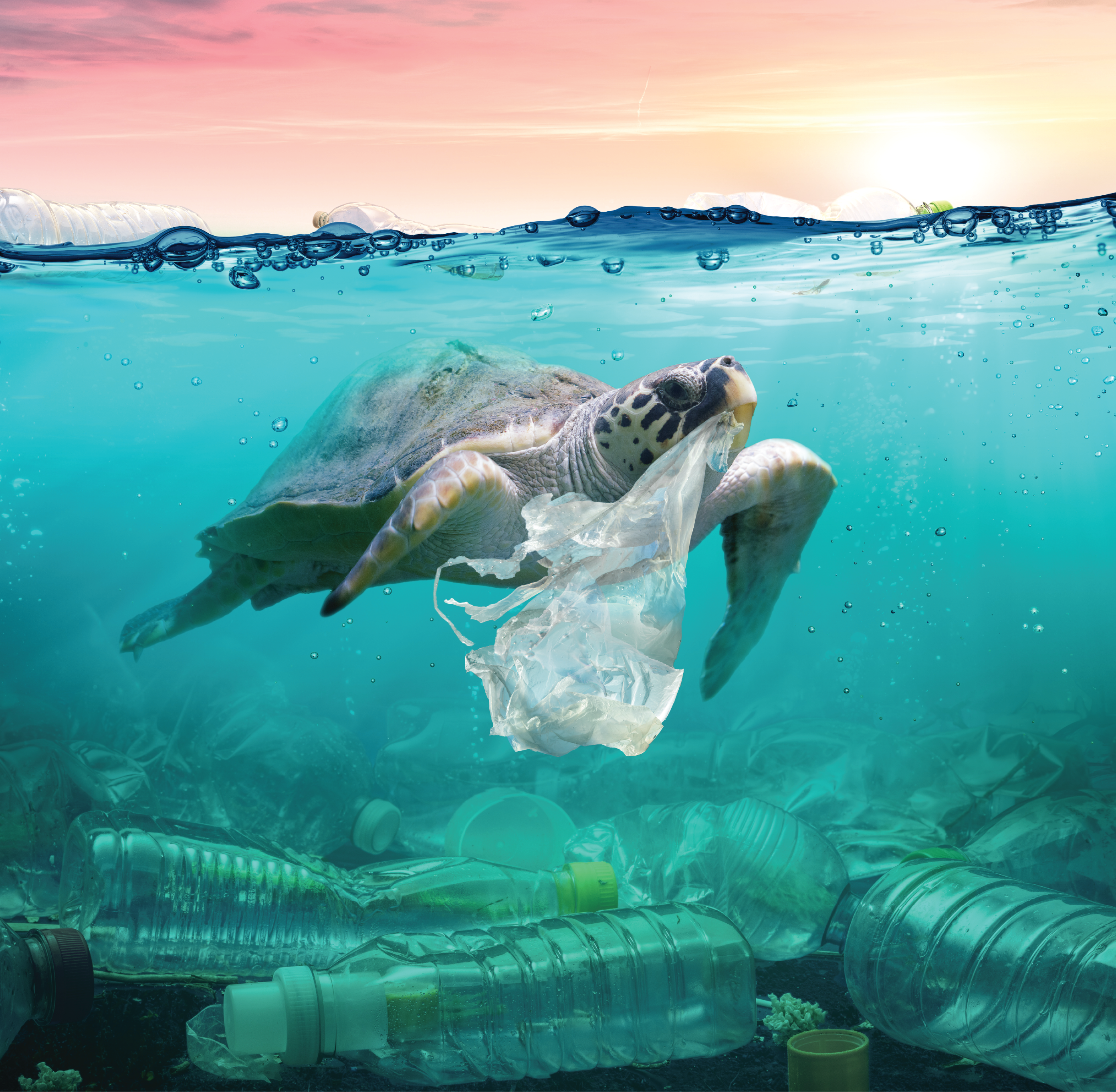
We Care for Our World



For decades, plastic waste has grown to become a major environmental concern due to irresponsible littering, no waste segregation, no reuse, no recycling, and poor waste management. In 2019, the total global plastics was 368 million tons and is forecasted to rise to 800 million tons in 2050. Each year, 8 million tons of plastic waste enter the ocean. Pieces of plastic were found inside the internal organs of marine animals. The contamination of plastic into the ocean dangerously disturbs the ecosystem.
Promoting Zero Waste
Thailand, ranked in the top five countries with the poorest plastic waste management, accounts for 2 million tons of plastic waste each year with only half a million tons being recycled. About 1.5 million tons are not properly managed while about 0.3 tons return to pollute the water, soil, air, and eco system as a whole.
Focusing on single-use plastics which make up 40% of total plastic wastes, the Thai Government has formulated the Plastic Waste Management Road Map 2018-2030 and announced the plan to reduce and eliminate the use of seven types of single-use plastics. In line with this effort, BIOPLASTIC became a viable solution that biodegrades naturally and circulates back to nature, not remaining as plastic waste.

Promoting Zero Waste



Thailand, ranked in the top five countries with the poorest plastic waste management, accounts for 2 million tons of plastic waste each year with only half a million tons being recycled. About 1.5 million tons are not properly managed while about 0.3 tons return to pollute the water, soil, air, and eco system as a whole.
Focusing on single-use plastics which make up 40% of total plastic wastes, the Thai Government has formulated the Plastic Waste Management Road Map 2018-2030 and announced the plan to reduce and eliminate the use of seven types of single-use plastics. In line with this effort, BIOPLASTIC became a viable solution that biodegrades naturally and circulates back to nature, not remaining as plastic waste.
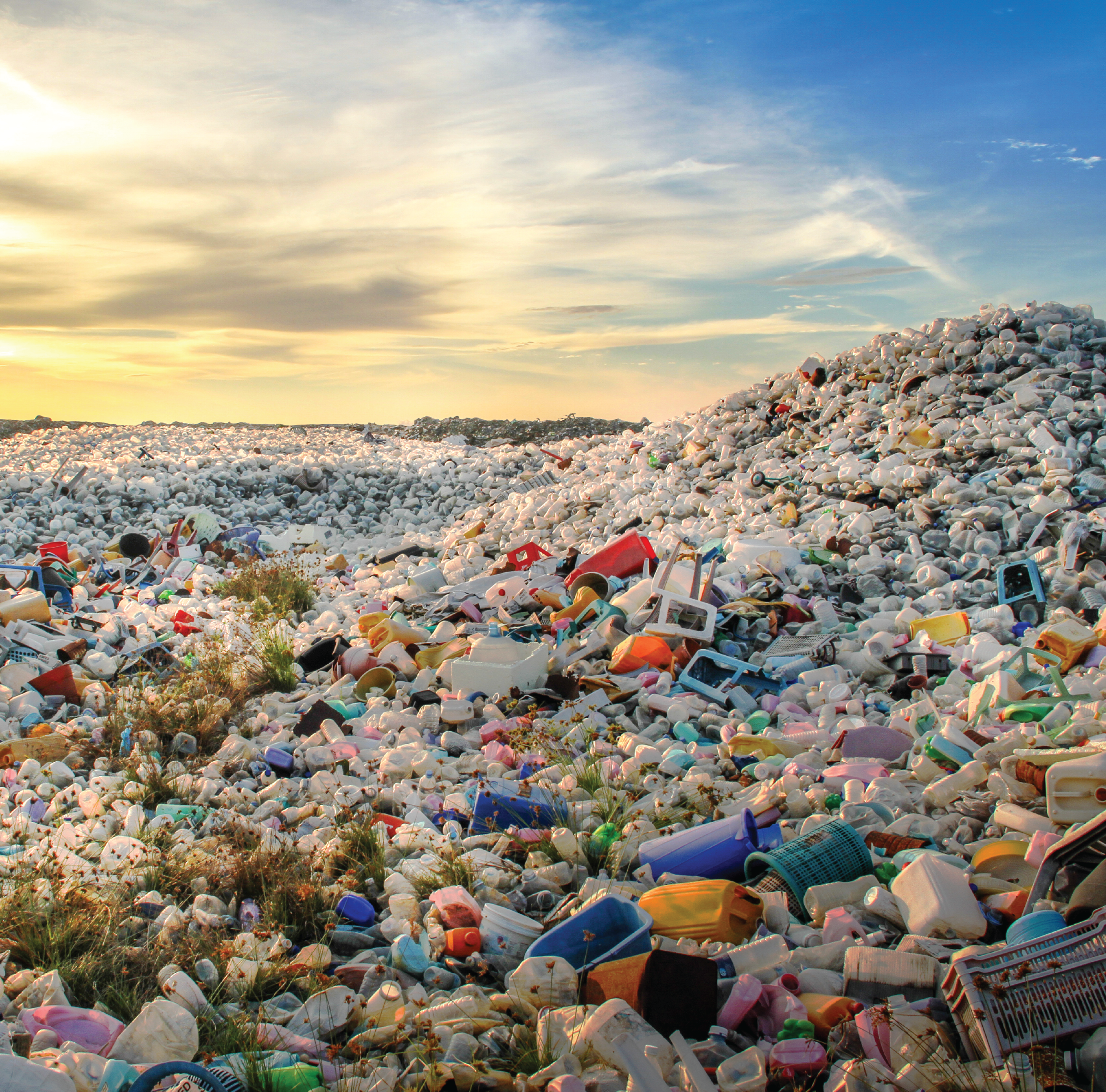
The Story has Begun



Since 2016, SMS has been Thailand’s leading pioneer innovating Bioplastic products and sustainable value chain solutions through the use of renewable biomass resources which circulate back to nature in a "Circular Economy Ecosystem".
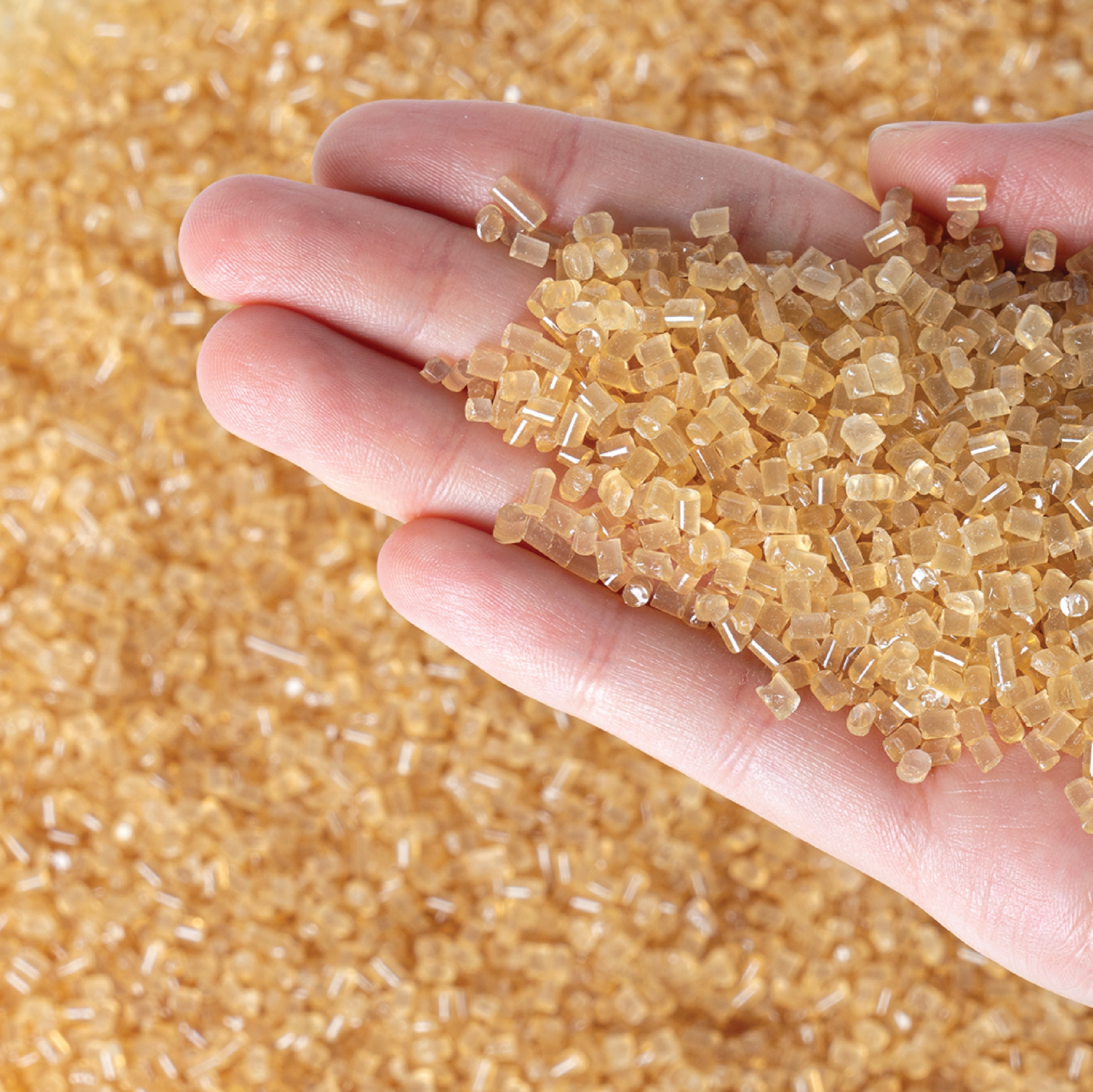
Get To Know TAPIOPLAST®



The TPS, a functional bioplastic resin derived from natural cassava, is engineered to lead the way to sustainability by providing fast biodegradation and bio-content at a more affordable price than other biodegradable polymers.
The fast biodegradation is due to starch being a natural food source for living organisms. In the presence of oxygen and humidity, the microorganism growth is accelerated, biodegrading TPS.
Thus, TPS is applied to various bioplastic compounds to speed up the composting rate to just a few months – useful in products preferred to biodegrade faster such as 100% compostable garbage bags, nursery bags, and mulch film. This is the TAPIOPLAST®TPS series.
TAPIOPLAST® Milestones
2019
TAPIOPLAST AT ANNUAL RED CROSS FAIR
MTEC-NSTDA and TBIA, research and development of 100% compostable bio-plastic garbage bag for food waste, exhibited at the Annual Red Cross Fair 2019
MINISTRY OF MHESI VISITED SMS
The ministry of MHESI Dr. Suwit visited SMS in December of 2019 to announce the national directive on a ban of single-use plastics starting Jan 1st 2020 and recognize SMS's progress in Tapioplast TPS and Bioplastic Compound developments.
2020
TAPIOPLAST FOR NURSERY BAGS FIRST LAUNCHED
The Royal Forest Department, in 2020, nursery bag development and field testing for optimum plant growth aligning with bag decomposition rate
2021
BIODEGRADABLE NURSERY FOR PLANTATION
Our agronomist team, in collaboration with our cassava farmer members, began in 2021 to trial various mulch film developments tuned for the best plantation yields in various conditions.
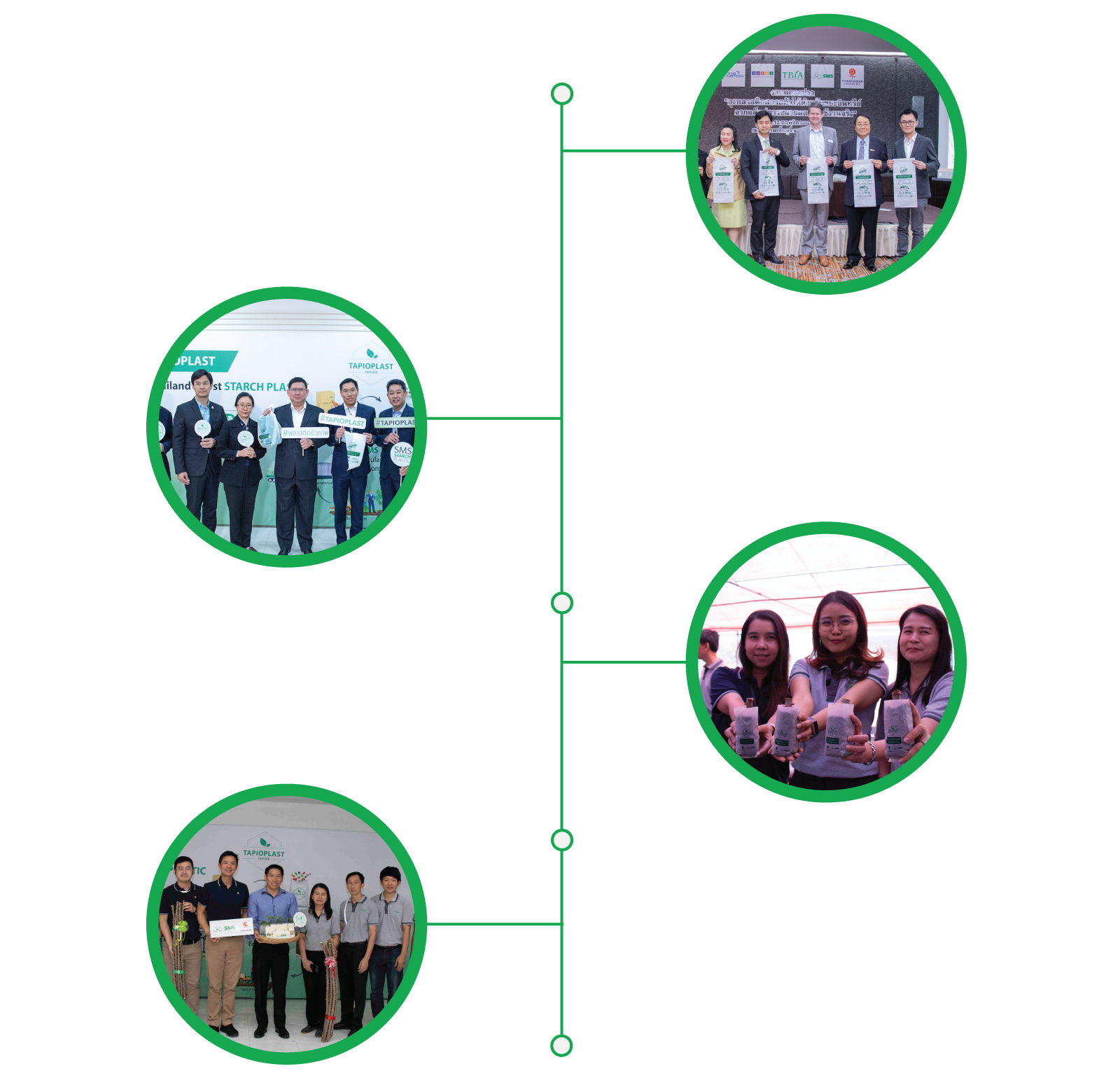
CONNECT & BETTER
THE VALUE CHAIN
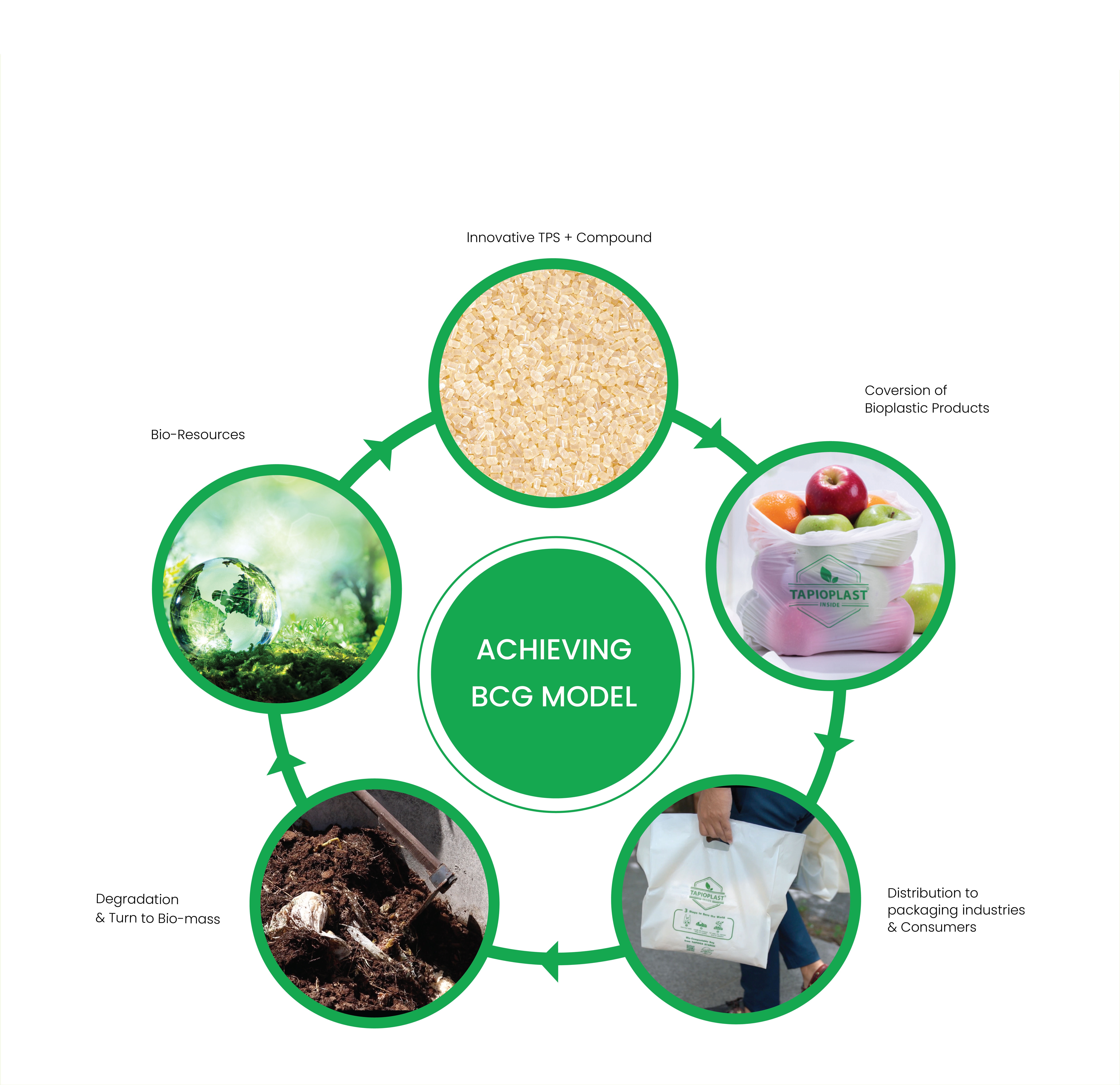
"We believe Every Single Small Action
Will Drive a Big Impact Toward the Future"
SMS CORPORATION


